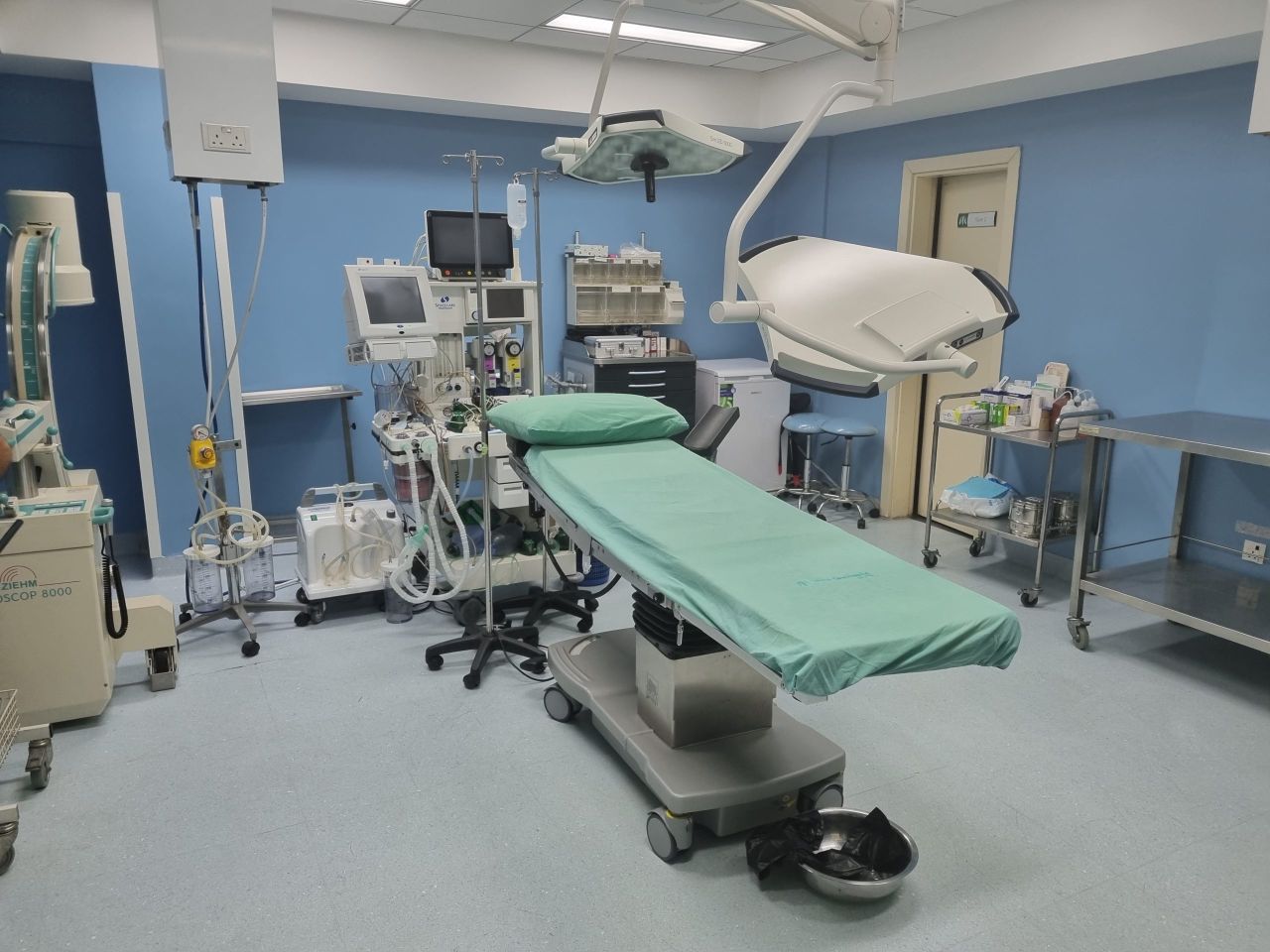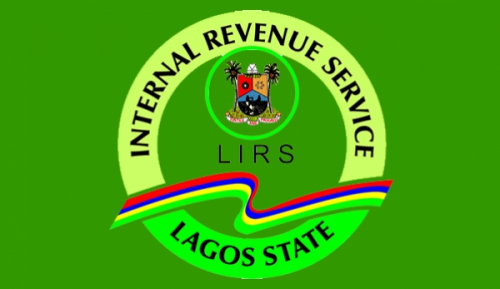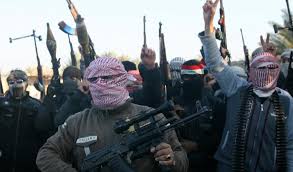Nigeria Healthcare System: A Mortuary in Disguise

By Fatai Ibrahim RN, BSN,MSN
The brutal truth about why seeking medical help in Nigeria is like playing Russian roulette with your life. Its appearing more factual that Human being do not have dignity in Nigeria, watching a pregnant woman walking for hours to deliver a baby with the last straw of strength in her spine only for her to lose the baby hurt my very soul and purpose of existence.
Imagine a medical staff dying on duty due to poor hospital management. What happened to us as people, why do we not see the need to build a formidable healthcare system? These questions are loud in my head and sometimes I can’t bear the pain of finding no solutions. What can we all do differently?
Bill Gates recently stood in front of Nigerian journalists and dropped what he probably thought was a bombshell: “Nigeria’s health budget is too small to solve challenges like maternal mortality.” Every Nigerian watching that press conference probably laughed bitterly. Too small? Mr. Gates, the problem isn’t the size, it’s where and how the money disappears to.
Nigeria allocated ₦1.3 trillion to healthcare in 2024. Sounds impressive, right? But here’s what people like Bill Gates didn’t know: In Nigeria, 90% of the healthcare budgets don’t build hospitals, they build mansions for politicians.
They don’t buy equipment; they buy luxury cars for health ministers and executives in the ministry.
Do we really need bigger budgets? Are these budgets actually reaching the patients?
Imagine if every Nigerian could track health spending like we track our bank alerts.
“₦50 million released for Ibadan General Hospital” – SMS received.
“₦30 million spent on equipment” – SMS received.
“₦20 million unaccounted for” – No report. Ever.
That’s the accountability crisis people like Gates missed in diplomatic speech with whoever is leading the country right now. That is just like an eavesdrop on the problem we are facing in Nigeria healthcare system.
A troubling report from The Nation on August 28, 2024, exposed what many Nigerians have lived through, “Despite efforts to increase coverage and improve the welfare sought quality healthcare delivery, only about 5% of Nigerians are enrolled in the NHIS and the said 5% are facing numerous challenges such as poor-quality services”.
A scheme that was Originally established to provide Nigerians with quality healthcare access and protect families from financial ruin, the NHIS has become a another sophisticated money laundering operation disguised as healthcare policy.
House of Representatives members investigating NHIS implementation found a system so broken, it makes Nigerian roads look well-maintained. The scheme was designed to protect families from medical bankruptcy. Instead, it has become the medical bankruptcy itself.
The numbers are staggering:
Only 5% of Nigerians are effectively covered by NHIS
Over ₦500 billion allocated since 2005, with less than 20% reaching actual patient care
Over 2,000 documented cases of fraudulent claims in 2023 alone
I am not just angry about this numbers, I am angry that the whole scheme is not goal oriented, its not solving a peculiar problem. Why do we keep designing systems that don’t just fail, but also enables corruption at industrial scale.
Picture this: Your child needs emergency surgery. The surgeon is ready. The anesthesiologist is prepared. Then NEPA takes light, and the hospital’s generator coughs once and dies. Your child lies on the operating table while someone runs around looking for diesel.
This is just one out of millions of reports, If its not back up generator, poor electricity, it will be poor employment structure, or strike. In Nigeria, medical emergencies don’t just fight disease, they fight darkness, incompetent leadership, achaic hospital leadership structure and many more.
Walk into any government hospital, and you’ll feel like you’ve time-traveled to the 1980s. The X-ray machines are older than some of the doctors operating them.
Dialysis machines break down more often than Lagos traffic lights.
Professor Kemi Odukoya from University of Lagos revealed the shocking truth: “We’re trying to save 21st-century lives with 20th-century equipment. Sometimes I wonder if we’re doctors or museum curators.” So many patients are experience Wrong diagnoses, they become routine with a lot of bereaved people losing hope in nigeria healthcare system.
Most times, Patients get misdiagnosed not because doctors are incompetent, but because the equipment lies more often than politicians during campaign season. How can you properly diagnose heart conditions with an ECG machine that belonged in a museum 20 years ago?
The internet exploded when TG Omori, an iconic music videos, revealed his health nightmare. For three days, #DialysisInNigeria trended as thousands shared similar horror stories. People kept asking, why don’t we place such expensive healthcare under NHIS, this is very critical for lives of every Nigeria citizens who might been going through such challenge.
“I went from directing for superstars to begging for dialysis money,” Omori posted. But here’s what really broke hearts.” Omori’s story isn’t unique—it’s the Nigerian story.
Dialysis costs ₦200,000 monthly. Average Nigerian salary: ₦60,000. Do the math. People are losing their lives just because they are unable to sustain the treatment of this health challenge.
I will paint one more scenario to let me drive home my point and why now is the time that everyone reading this article get inline with fighting for a better healthcare system
Picture this: It’s 10:47 PM on a Tuesday. You’re an Uber driver, and your passenger—a 45-year-old banker returning from a late meeting—suddenly clutches his chest. Traffic on Third Mainland Bridge has you trapped between metal barriers and Lagos lagoon. Your first instinct? Call for help. Your first reality check? You’re essentially calling for a prayer.
When Lagos State Emergency Services finally answers (if they answer), the conversation goes like this:
You: “Emergency! Man having heart attack on Third Mainland Bridge!”
Operator: “Okay, what’s your location exactly?”
You: “Third Mainland Bridge, heading to island!”
Operator: “Hmm, there is big traffic in that area. Our ambulance might not reach you for 2-3 hours.”
Your passenger is dies while you’re both trapped in traffic, and you become Nigeria’s next viral tragedy story. You are reporting in the police station for the next 2 months just to clear your involvement. Your first reality check: In Nigeria, medical emergencies are death sentences regardless of your social status.
This isn’t fiction, it’s reality of the delicate healthcare system we are running. Lagos boasts Nigeria’s “best” emergency response system is just at 20% functionality. Other states? You can hardly say anything about emergency response.
Nigeria has no functional emergency response units outside Lagos. Even Lagos operates at 20% functionality if it not exaggeration. Other states? You’ll see a unicorn before you see an ambulance. This isn’t fiction. This is why as a
Nigerian, you should be terrified of the dangers of not having medical emergencies.
Enter any government hospital and witness the unmotivated healthcare workers epidemic. Senior Nurses arriving at 10 AM for 7 AM shifts or the ones who sleep during night shift.
Doctors spending consultations on personal issues and acting godly all because you are not accountable to anyone, its government work eventually. Regular Ego clashes between doctors and nurses because of poor management and government policies turning hospitals into reality TV shows.
Dr. Fatima Bello, a former Lagos consultant, exposed the toxic culture: “Senior doctors give wrong diagnoses rather than admit they need help from younger colleagues. Everyone wants to be the hero, but patients become the casualties.”
The lack of cohesion among healthcare workers creates chaos. When doctors don’t communicate, patient health illiteracy flourishes because nobody takes responsibility for explaining conditions to families. Is it ethnic bigotry masquerading as administrative efficiency? Is it the “big man syndrome” where hospital directors prioritize political connections over patient care? Or is it simply collective leadership incompetence disguised as policy? Patients are dying because of these confused, families blame God instead of system failure.
Not leaving these shenanigans without talking about Nigeria’s inadequate research and data gathering means healthcare workers treat patients based on old medical studies that may not apply to Nigerians. Poor electronic health records ensure we never learn from successes or failures, even the almighty UCH, Ibadan still running on manual records in 21st century.
Nigeria’s healthcare sector has become where brilliant solutions go to die. Dr. Adaora Okafor’s telemedicine platform that could revolutionize rural healthcare access, but guess what, it is stuck in bureaucratic limbo for 18 months.
There are series of reports of technologies been recommended to transform the health section by innovators in Nigeria, The AI-powered diagnostic tool developed by University of Lagos researchers? All this don’t see the daylight or get necessary funding because it threatens existing contractor relationships.
The pattern is sickening: Innovation emerges, leadership strangles it, people die, rinse and repeat.
When Laws Protect Nobody, everyone loses. Everyone suffers. Everyone dies a little each day. Poor legislation protecting patients and healthcare workers creates a system where accountability is impossible. When patients die from negligence, families have no legal recourse. When healthcare workers face impossible conditions, they have no protection.
As Nigeria’s healthcare system crumbles, Rwanda—with a GDP 20 times smaller—has achieved universal health coverage for 98% of its population. Their secret weapon? Digital health ID cards, transparent budgeting, and zero tolerance for corruption.
Ghana’s National Health Insurance covers 40% of its population effectively, while Nigeria’s NHIS struggles with 5%. South Africa, despite its challenges, maintains emergency response systems that actually respond to emergencies.
The difference isn’t money, it’s political will, accountability, and respect for human life.
Emergency response time in Nigeria is at an average 4 hours compare to Global standard: 8-15 minutes, Medical equipment functionality rate at 23%, thanks to private institutions meanwhile the acceptable standard is 85%+.
Nigeria has a critical shortage of nurses, with reports indicating a ratio of 1 nurse to approximately 1,160 patients and Doctor-to-patient ratio: 1:5,000 which falls significantly short of the World Health Organization (WHO) recommended ratio of 1 nurse for every 120 patients and 1 doctor to 600 patient
Nigeria can choose transformation or continue this mortuary masquerade. Every day we delay reform, 2,300 Nigerians die from system failure, not disease. The question isn’t whether we can afford to fix our healthcare system, it’s whether we can afford not to. Every day we delay comprehensive healthcare reform, Nigeria loses approximately 2,300 citizens to preventable deaths.
That’s nearly 1 million Nigerians annually who die not from incurable diseases, but from a curable system. The diagnosis is complete. The prescription is clear. The question is: Do we have the courage to take the medicine? Do we want to solve all this problems holistically.
Revamping Nigeria’s Healthcare System: A Blueprint for Transformation
I once worked in a hospital where a helicopter could land directly on the premises. When a critically ill or severely injured patient needed to be transferred anywhere in the country, a doctor, registered nurse, and paramedics would accompany them.
Time is always critical when managing trauma patients and I would be providing an excellent solution-oriented approach by framing a systemic intervention that create a credible and authoritative foundation. For too long, the narrative surrounding Nigeria’s healthcare has been one of decay, defined by challenges that seem insurmountable.
We have diagnosed the sickness—from unaccountable budgets to crumbling infrastructure and demoralized staff. But condemnation without a clear path forward is a dead end. This blueprint outlines a strategic, multi-pronged approach to dismantle the old, failing structures and build a resilient, modern, solution-oriented and equitable healthcare system.
These are not isolated fixes but interconnected pillars designed to support each other and create lasting change. Here is the six-point plan to transform Nigerian healthcare from a source of national anxiety into a source of national pride.
Intervention 1: Operate the CEOs Model, Abolish CMDs Model— Run Hospitals Like Healthcare Businesses, Not Bureaucracies
Nigeria’s hospitals are failing because they are administered, not managed. The obsolete Chief Medical Director (CMD) model places doctors in complex management roles, leading to sentimental decisions, organizational chaos, and a complete lack of performance metrics.
This makes hospitals unaccountable black holes for public funds, understaffing, inefficient operations, etc., where failure is inevitable.
The solution is to surgically remove this flawed model and install professional Chief Executive Officers (CEOs), a structure proven effective by world-class institutions like the Mayo Clinic. This isn’t just a title change; it’s a fundamental rewiring of hospital leadership.
A CEO, an expert in hospital management, human resources and finance, would be held accountable for the hospital’s overall performance. They would be supported by a Chief Medical Officer (CMO), Chief Nursing officers and Other healthcare leaders who will focus purely on clinical quality, a Chief Operating Officer (COO) on logistics, and a Chief Financial Officer (CFO) on the budget. This corporate structure ends managerial chaos by introducing data-driven decisions and clear lines of authority.
Crucially, it makes performance visible through mandatory public “Performance Dashboards” tracking key metrics like wait times, staff working hours, infection rates, etc… By separating management from medicine, we finally run our hospitals like the efficient, transparent, high-stakes service organizations they are meant to be, ending the era of waste and transforming patient care.
Intervention 2: Unleash Transparent Hospital Inspectors — Certify Safe Hospitals, Shut Down the Killers
To build a healthcare system every Nigerian can trust, we must introduce clarity and guaranteed standards. We can achieve this by establishing an independent umpire for healthcare, the National Commission for Healthcare Quality (NCHQ), inspired by NAFDAC’s success. This new commission will champion excellence by conducting rigorous evaluations of all health facilities.
Hospitals that meet high standards for equipment, staffing, and emergency readiness will earn a “Seal of Safety” a public grade they can proudly display. This empowers citizens to make informed, safe choices and rewards well-run hospitals for their commitment to quality care.
All ratings will be published online, creating a transparent system that fosters healthy competition and drives continuous improvement across the sector. A citizen whistleblower hotline will also allow everyone to participate in upholding these new standards.
By celebrating and certifying excellence, we can create a future where every hospital sign is a trusted promise of healing. This initiative will restore public faith and ensure every Nigerian can seek treatment with the full confidence that they are in safe, capable hands.
Share your healthcare solutions using #NigeriaHealthcareReality. Let’s make this the last generation that accepts death as medical policy.










